Ivan Kuliashou, political prisoner's son: “They beat me and constantly threatened me”
Former customs officer and political prisoner Mikalai Kuliashou has been recently sentenced to five years in prison. He was convicted for allegedly helping people evacuate from Belarus to Lithuania. Another political prisoner and a student were also convicted in the same trial. The trial lasted almost a month and was held behind closed doors. Human rights defenders found out that shortly after Kuliashou's arrest in September last year, KGB employees also arrested his 20-year-old son Ivan. He survived torture and pre-trial detention, was convicted for protesting in 2020, and was eventually set free. Ivan, who is now safe, spoke to Viasna about the beatings in the KGB, the pressure, and the two criminal cases in his family.
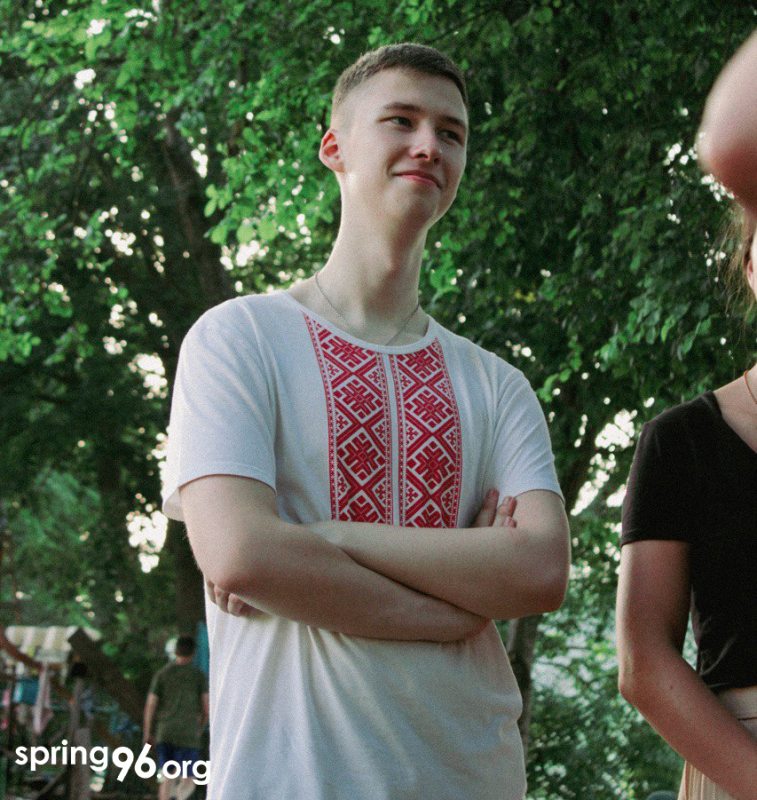
- Ivan Kuliashou was arrested shortly after his father Mikalai. Photo courtesy of Ivan Kuliashou.
“On the way, they said, ‘We'll drop you off and shoot you’”
Ivan Kuliashou is a student who was studying computer science at the Belarusian State University of Informatics and Radioelectronics (BSUIR) and worked as a programmer. Due to his arrest, he had to give up his studies. Ivan learned about his father's arrest when he himself was detained and taken to the KGB office in Pastavy.
“There, they demanded passwords from my phone and tortured me for about an hour. They beat me and constantly threatened me. They did not inform me why I was detained. Later I understood that they had read my messages with my father on his phone. They thought I was helping him, so they tried to find out more. When I gave them the passwords, they took me to Minsk. On the way, they said, ‘We'll drop you off and shoot you’.”
“I was brought in front of my father as they took him out of the office”
Ivan says that the Minsk KGB officers were interrogating and threatening him, and although he wasn't scared at the time, he perceived the threats as very real.
Ivan remembers that when he was brought to the KGB, he was taken straight to the fourth floor to see the chief who was questioning him about the case of Mikalai Kuliashou and the protests. Later that evening, around midnight, Ivan was taken to an office on the same floor where he saw his father for the first time.
“When we first met that night, he was very depressed. He was probably also tortured and hooked to a polygraph.”
“I was lucky, and they let me keep my food”
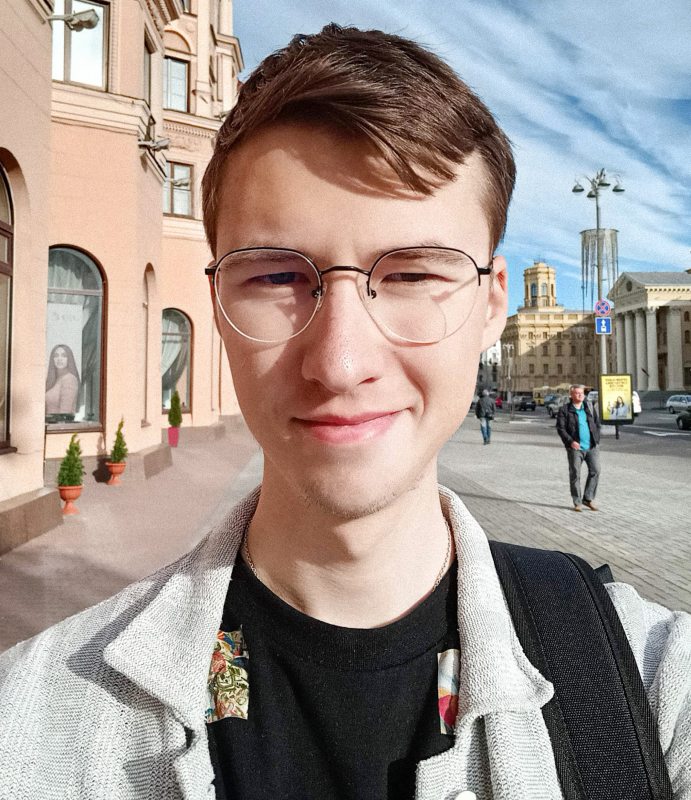
- Ivan was detained in KGB premises In Pastavy and Minsk, the latter could be seen in the background.
KGB officers brought Ivan blank sheets of paper and an agreement to cooperate, which they asked him to sign.
However, they later used these sheets to make false statements against Ivan in court. I saw it only in the materials when familiarizing myself with the case. Ivan's only "crime" was that he had participated in the protests and had photos of himself at the marches in 2020. The Investigative Committee has filed criminal charges against him under Article 342 of the Criminal Code (active participation in group actions that grossly violate public order).
Ivan was sent to the detention center at Akrescina for ten days, where he was placed in a solitary confinement cell with 13 other people.
“I was lucky, and they let me keep the food I had with me: bread, cheese, and lemonade. So we had a posh meal there.
The conditions were terrible. The food was served cold. It wasn't even [typical] food but water with floating fat.
This location was the worst after the arrest. There's a realization that it won't end well. That's why you must always occupy yourself with something.”
“I could see a little bit of the sky, even if it was through the bars”
Ivan's cellmates were also detained for participating in the protests. There was an entrepreneur, a barber who worked at the MTZ during the protests, a truck driver, and a downtown partygoer. Some men were beaten. Later, Ivan was transferred to Pre-trial detention center No. 1, where he was held for six weeks. For some time, he kept a diary there.
“Walks in the prison yard were one of the ways to keep oneself in shape. It was hard, and I had to force myself to go out there. But still, it helped me maintain my health, and I could see a little bit of the sky, even if it was through the bars.”
“Please write something to the unrecognized political prisoners”
Ivan remembers the happiest moments in the detention center when he received letters.
“The happiest moment of the day is when you receive a letter. It doesn't matter what it is: a photo, a story about how someone spent their day, or even just news about what's new in a store. I know that writing letters to prisoners could lead to serious troubles. In fact, we don't know about many political prisoners. Viasna tries to learn about all of them and tell their stories, but many can still remain unknown, and the only information about them can come from you. So please, write something to the unrecognized political prisoners. It will show that you haven't forgotten about them and will make them happy.”
A former political prisoner says that there are many contemporary books in the library at detention facility No. 1 known as Valadarka, from “How Google Works” to “Harry Potter”.
“But [books of] some authors were still very difficult to obtain. For example, books by Viktar Martsinovich and Svetlana Alexievich were simply impossible to get due to high demand.”
“We're not forcing you, but your son can go back to jail”
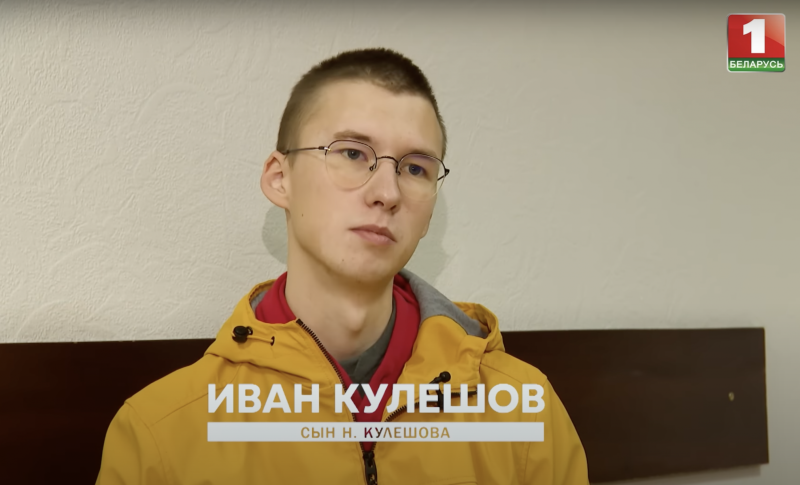
- A still from a propaganda film shown on state TV.
One or two times, KGB officers visited Ivan in the detention center regarding his father's case. On November 1, Ivan was unexpectedly transferred under house arrest. It happened right before he appeared in a propaganda film on state TV called “Running on the Blade: How Lithuanians Deceive Fugitives?”
"They told us what to say, and one of the KGB chiefs added, ‘Of course, we're not forcing you, but your son can go back [to the detention center]. Only now through the local police department.’ They filmed us one by one with my father.”
After filming the movie, Ivan was released home, and Mikalai was brought back to the detention center.
“I was afraid that I would go to prison and that they would start harassing me over my father's case”
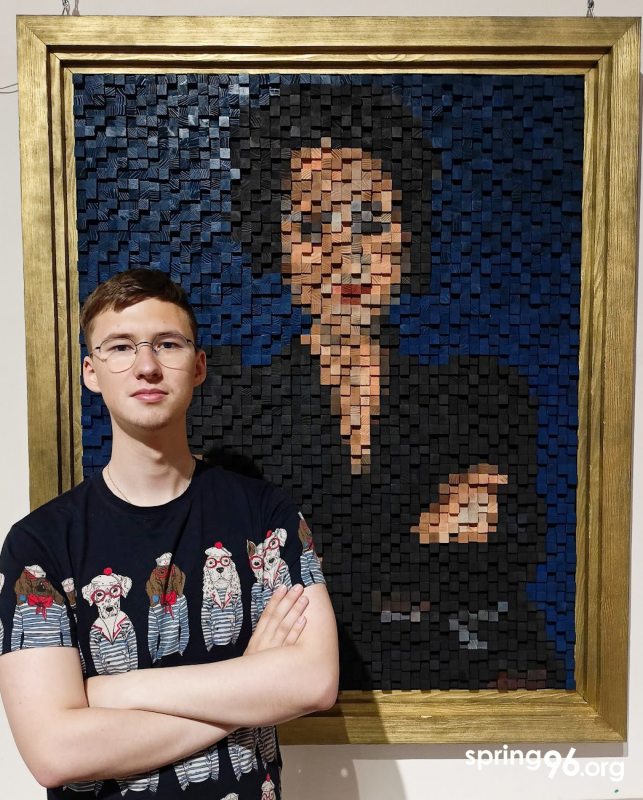
- Photo courtesy of Ivan Kuliashou.
According to Ivan, he wasn't made an accomplice in his father's case because his father probably set such a condition.
For over a month, Ivan was kept under house arrest.
On December 14, 2022, the Saviecki District Court of Minsk sentenced him to three years of restricted freedom under home confinement under Part 1 of Article 342 of the Criminal Code. He left Belarus shortly after.
“I know that those under home confinement have their regime leveled up. I was afraid that I would go to prison and that they would start harassing me over my father's case, so I decided to leave the country.”
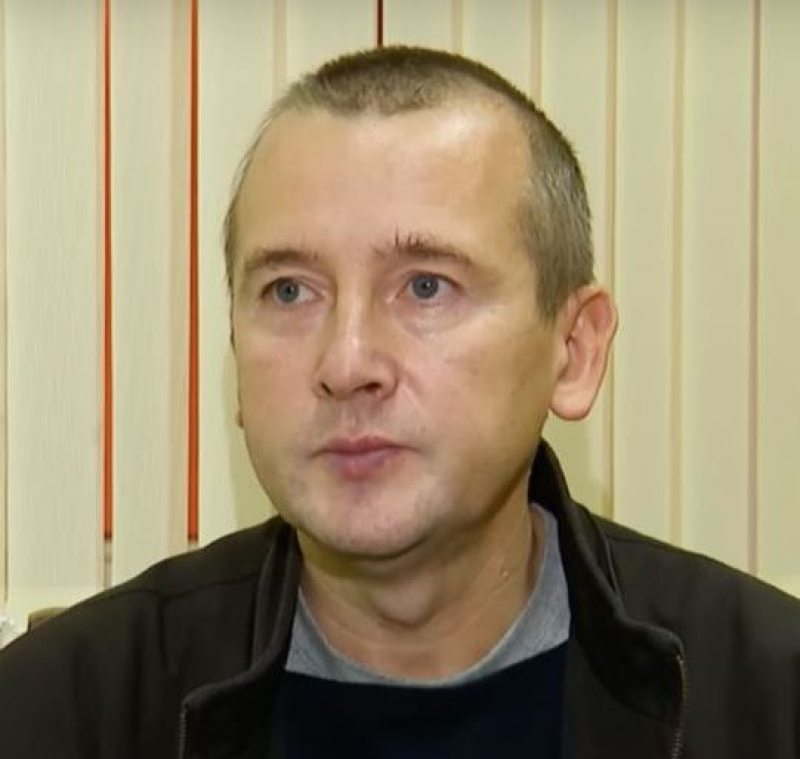
- Mikalai Kuliashou, Ivan's father has received five years in jail.
On April 5, the verdict for political prisoners Mikalai Kuliashou, Anita Bakunovich, and Yahor Kurzin was announced at the Hrodna Regional Court. According to the prosecution, the former customs officer collaborated with the non-governmental organization Dapamoga, operating in Lithuania and assisting political refugees.
He was sentenced to five years in prison under Part 3 of Article 371 of the Criminal Code (Deliberate illegal crossing of the state border committed by an organized group), Part 1 of Article 14 and Part 3 of Article 371 (Attempted deliberate illegal crossing of the state border committed by an organized group), Part 3 of Article 361-1 of the Criminal Code (Participation in an extremist formation), Article 378 of the Criminal Code (Theft of personal documents), and Part 1 of Article 14 and Part 2 of Article 380 of the Criminal Code (Attempted forgery and manufacture or sale of forged documents).
The case details and Mikalai's position on the matter are unknown, as the trial was held behind closed doors. Even Ivan, his son, knows nothing about the case. The verdict was handed down by Judge Viktar Senko.

















